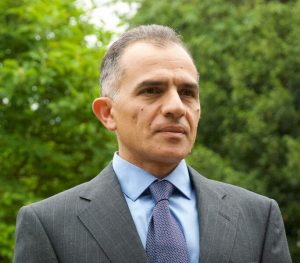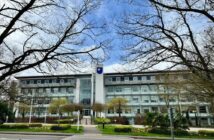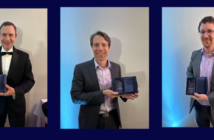An Open University (OU) researcher has been awarded €393,000 from a European Union (EU) emergency fund to track the spread of misinformation about coronavirus (COVID-19) on social media platforms.

Professor Harith Alani
Harith Alani, Professor of Web Science at the OU, received funding from EU Horizon 2020 (H2020) for the Health Emergency Response in Interconnected Systems (HERoS) project.
News of the project and OU research grant follows on from the government announcement regarding the introduction of specialist units to combat the spread of false information about coronavirus.
In recent weeks, the government has reported a spike in false and misleading narratives about coronavirus online.
Unearthing myths
Professor Alani and his team will track the extent of misinformation about COVID-19 in social media content so that it can be brought to the attention of policymakers and be used to alert social media users of the extent to which they are spreading false information.
Today (1 April), the team will begin work on the three-year project and use automated algorithms to trawl COVID-19 content on social media platforms, such as Twitter and Reddit, and check it against registered fact checkers.
Harith Alani, Professor of Web Science at the OU, said:
“We already have tools and algorithms that have been doing this for generic misinformation in CO-INFORM; a project that aims to support people, journalists, and policymakers with better misinformation identification and tracking tools.
“We will extend and use such algorithms to find the claims that are being made about COVID-19, check them against facts from trusted and authoritative sources, and produce knowledge and graphs for policymakers and health influencers, showing which rumours are spreading more than others, where, and when.”
OU researchers will look to debunk myths, such as COVID-19 is a man-made virus, members of the public can wash the virus away with water and that taking a hot bath will prevent you from catching COVID-19.
Combating false narratives
The team will also investigate the most effective way to alert users on Twitter and Reddit of the extent to which they are spreading false information in their posts.
Professor Alani, adds:
“We know that we can use this information to show individuals how much false information they have been circulating on social media, and we need to look at how to correct people’s beliefs in a more effective and personalised fashion. Although we are seeing that this misinformation is spreading, we don’t yet know the effect of this on this type of crisis.”
HERoS is an international project, involving 11 partners from six countries, which will integrate behavioural and informational dynamics in epidemiological and supply-chain models in response to the COVID-19 pandemic.
The HUMLOG Institute at Hanken School of Economics will be coordinate the project, working with the following partners:
- Svenska Handelshogskolan, Finland
- Technische Universiteit, Delft, Netherlands
- Stitching Vu, Netherlands
- NHG Consulting OY, Finland
- Centrum Badan Kosmicznych Polskiej Akademi Nauk, Poland
- Squadron Sp. z o.o, Poland
- Polish Center for International Aid, Poland
- ARTTIC, France
- Associazione Della Croce Rossa Italiana, Italy
- People to People Health Foundation (Project Hope) – Branch Office Skopje, Macedonia
For more on Professor Alani’s work, see below.



